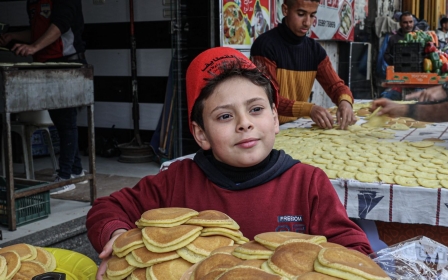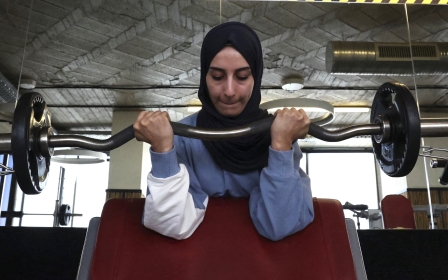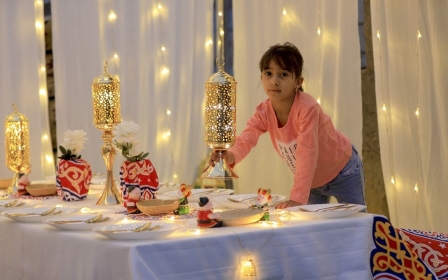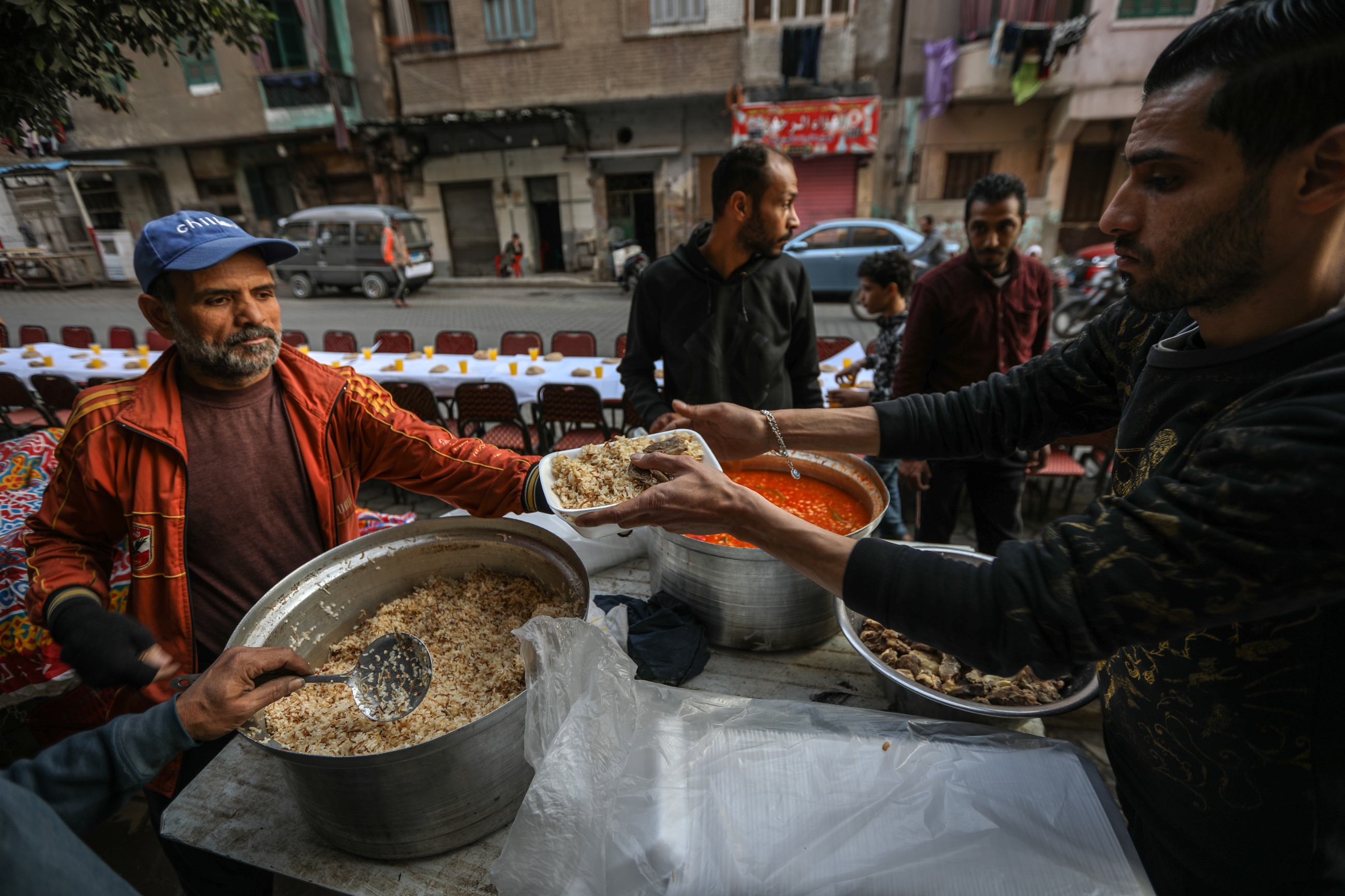
In pictures: Egypt’s Ramadan tables provide iftar for increasing numbers of people in need
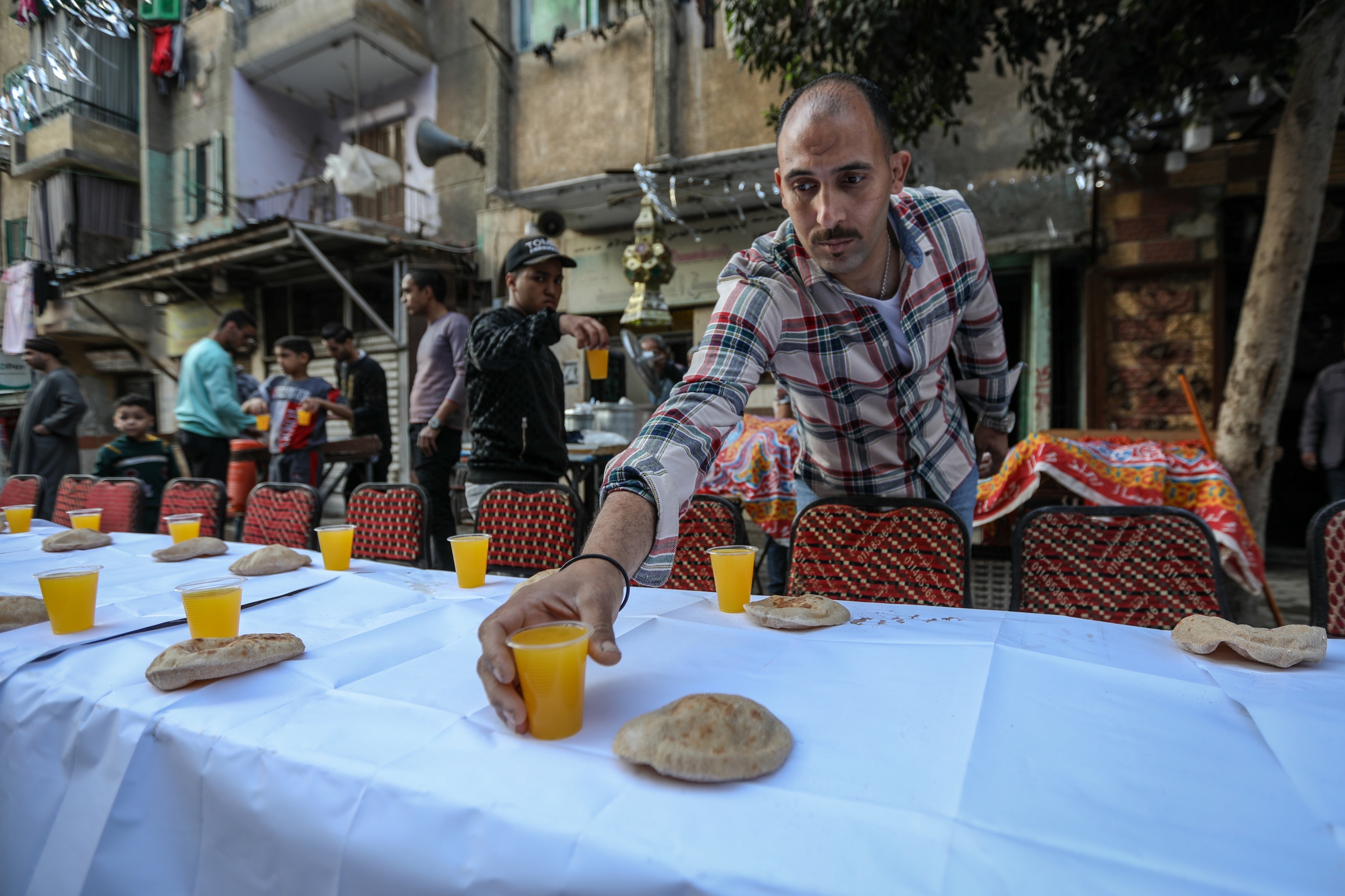
Every Ramadan in Egypt, local communities assemble long tables on the streets before sunset. Draped in colourful patterned cloth, they are laid out with dishes full of dates, other food and drinks for passersby and the less fortunate to eat when the fast breaks. Known as maidat al rahman (tables of mercy), the custom has its roots in the Islamic tradition of hospitality, specifically the Ramadan tradition of feeding others, especially those in need. (All photos by Fadel Dawod)
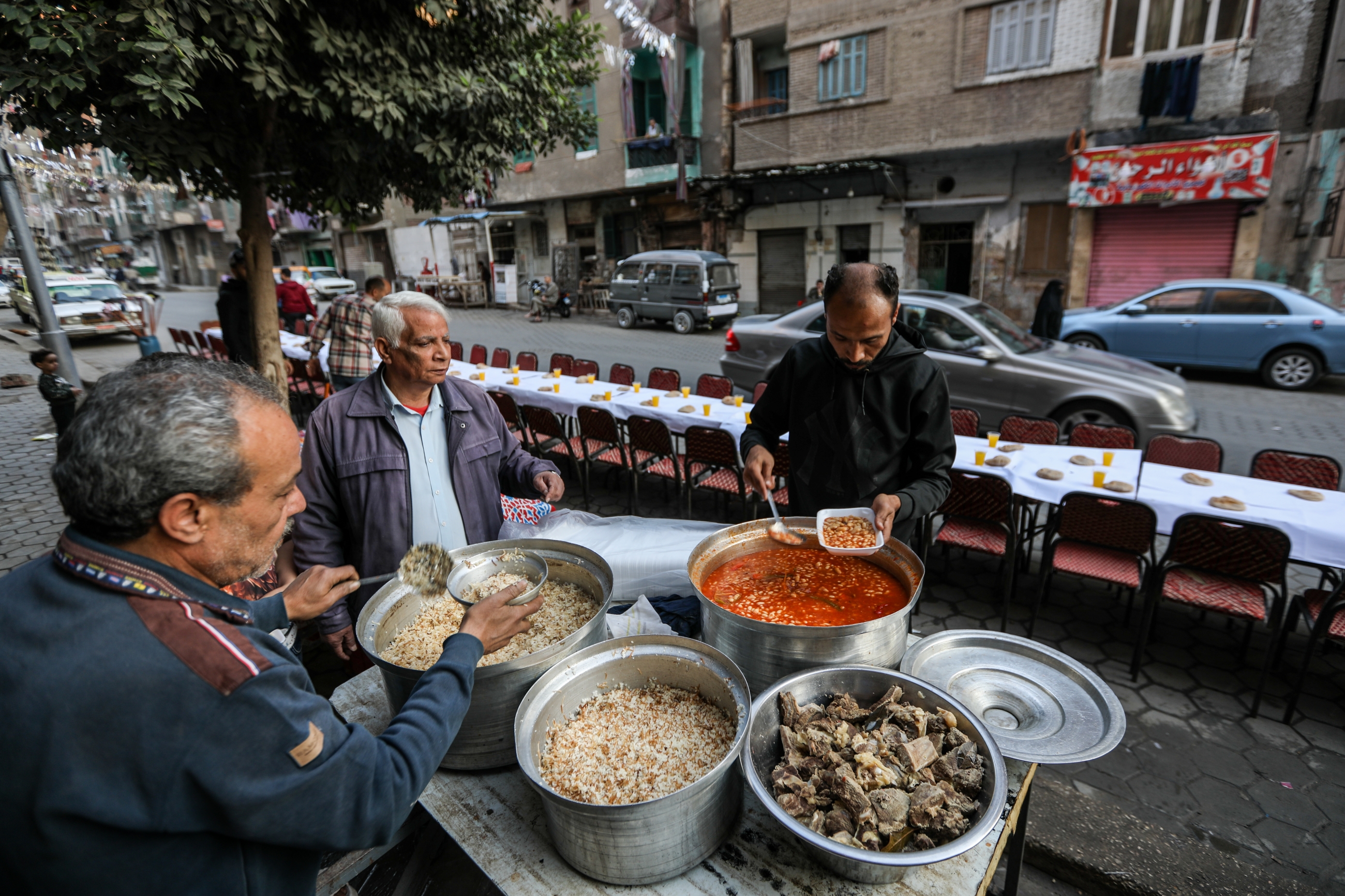
Ali Helmy, 60, from Cairo works for a contracting company and has been setting up the tables every year for the past two decades. He has noticed more people coming to break the fasts there as the country's economic crisis worsens. “This year there has been overcrowding at the tables because of the economic situation,” he says. “My wife cooks the food for the iftar tables. The food varies every day; some days it’s rice and beans, sometimes it's rice and meat, and other days it's chicken, rice and potatoes."
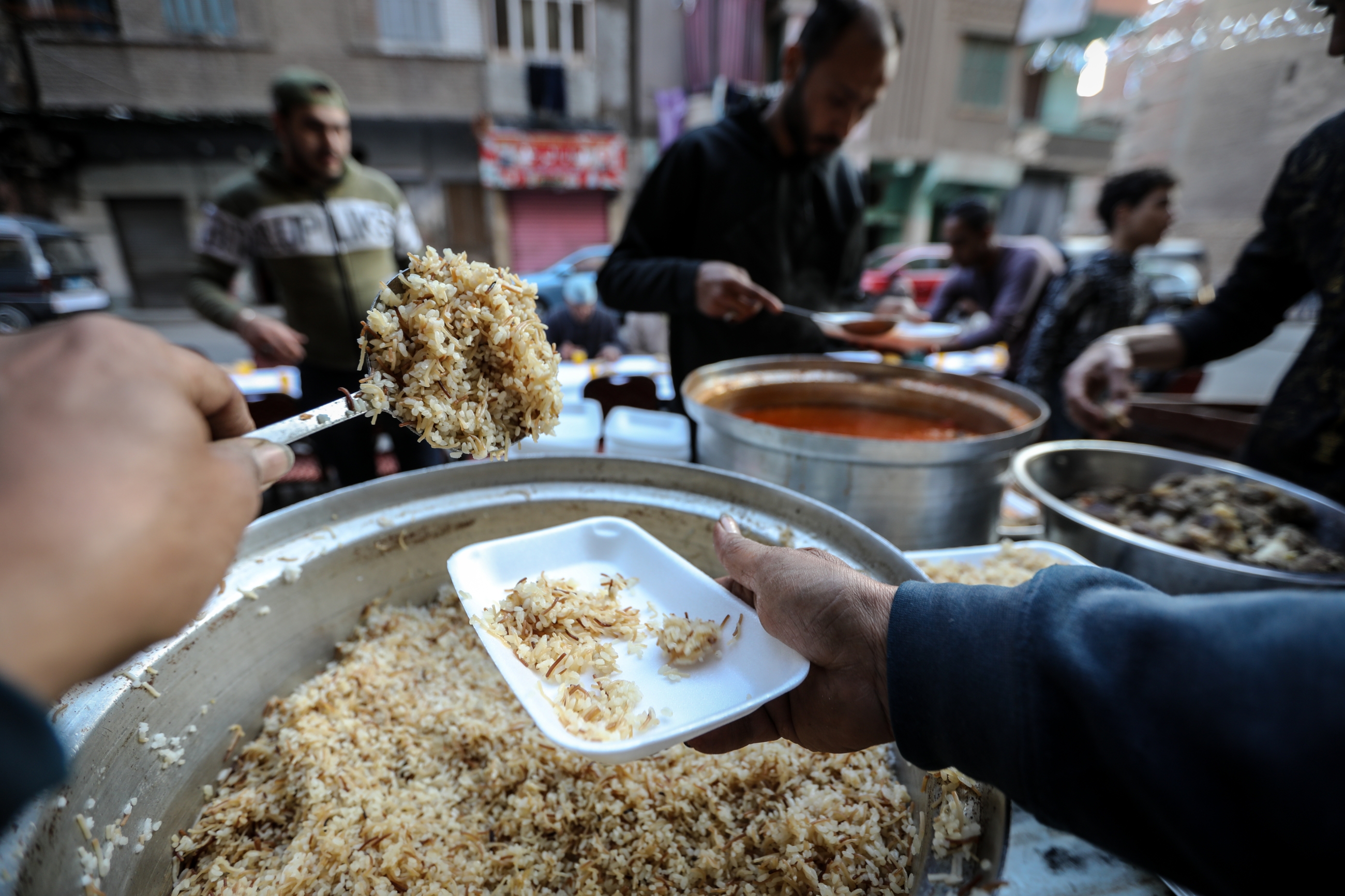
Anyone passing by is welcome to eat at the tables. According to Helmy, those who do so at his are typically workers in nearby hospitals and factories, as well as taxi and ambulance drivers. Those organising the tables are not immune from the economic situation - inflation has driven up the cost of goods across the board, resulting in fewer tables and less lavish spreads. The tables serve a social purpose as well, as they provide an opportunity to meet people.
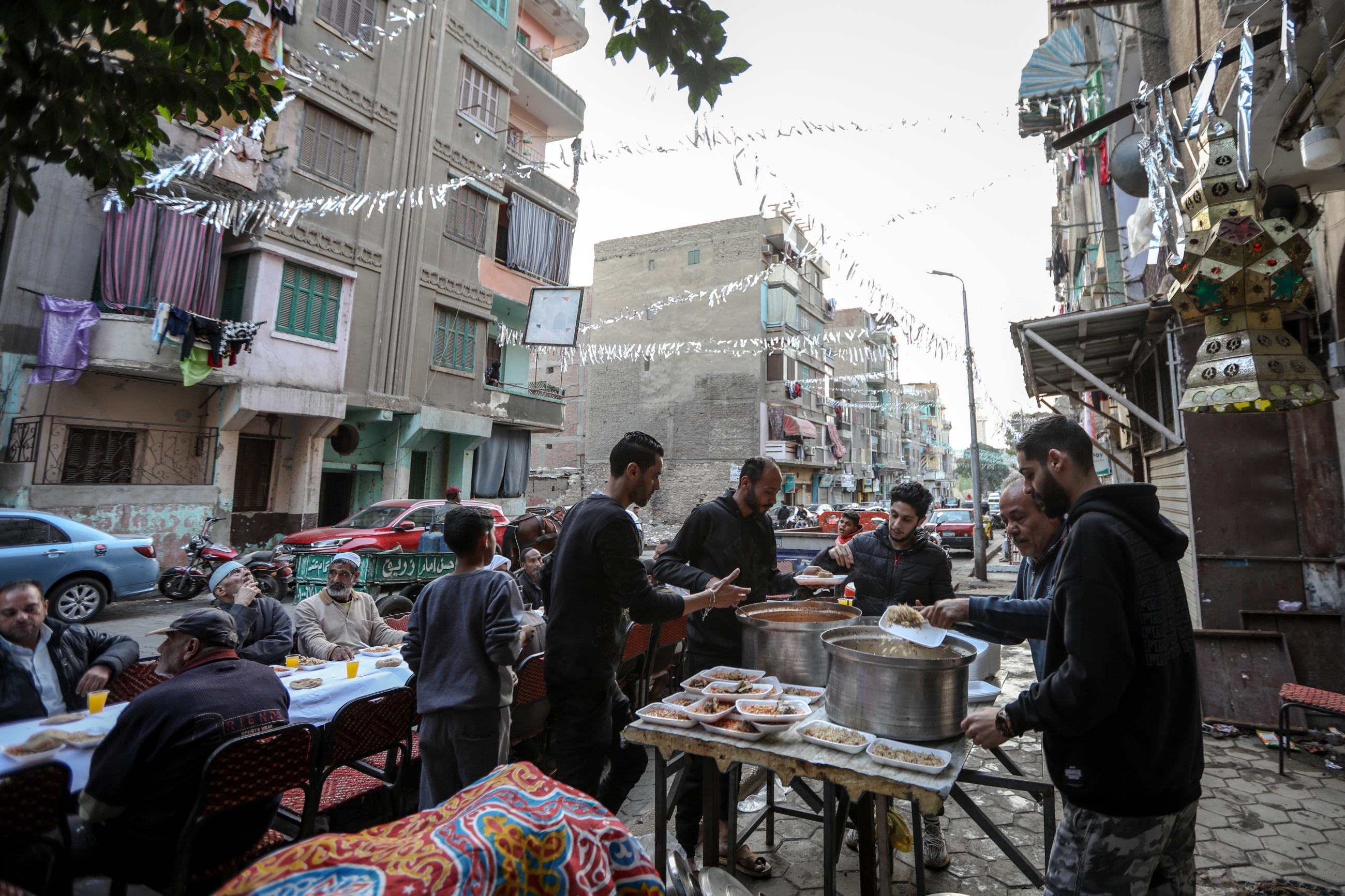
The tradition is believed to date back to the early Islamic era, to Egypt's ninth-century governor Ahmad ibn Tulun, who would host large iftars and encouraged others to do the same in their own communities.
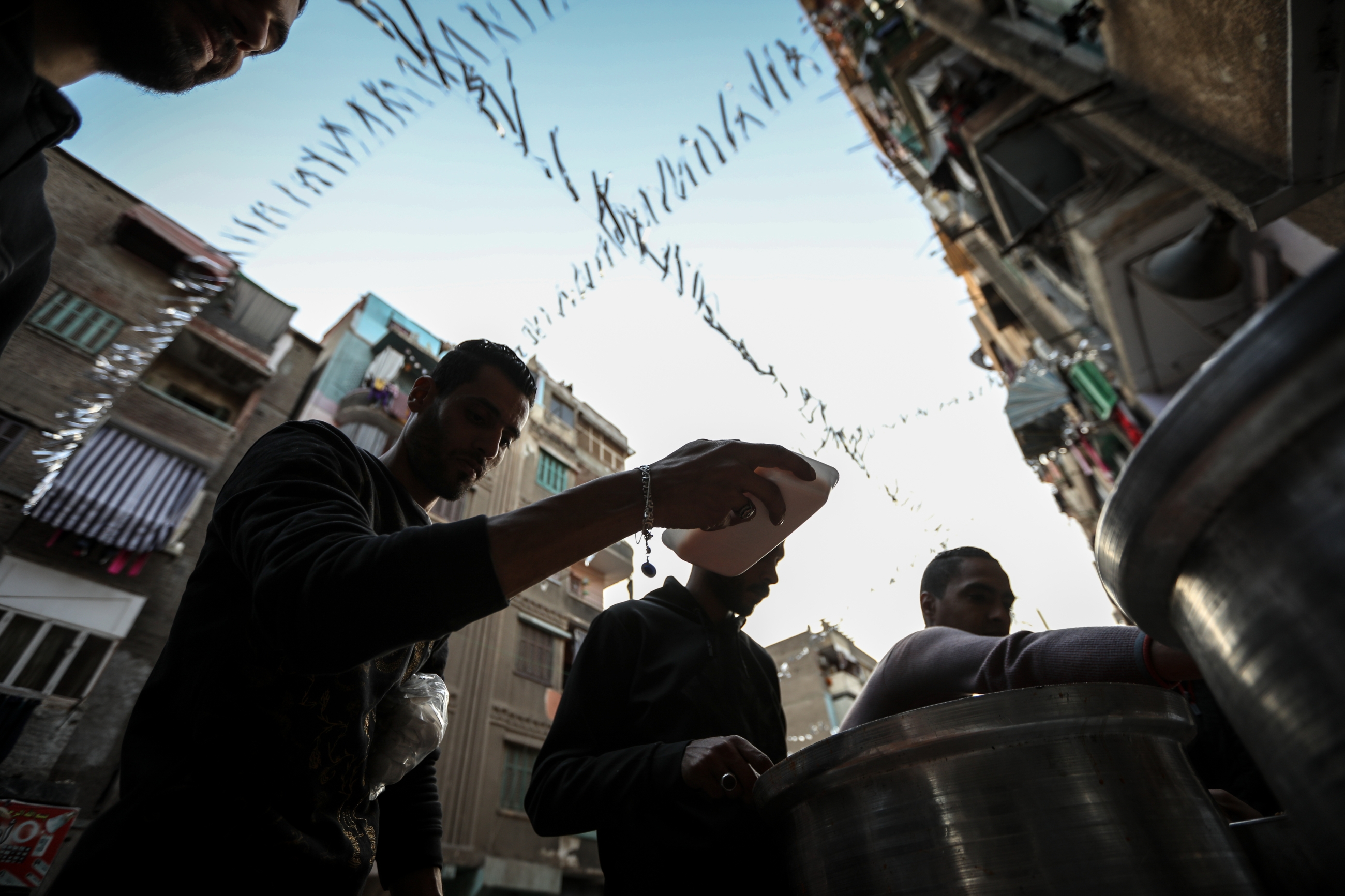
Sherif Helmy, a 32-year-old butcher who provides food in the Sayeda Zeinab neighbourhood of Cairo, says that he has also noticed an uptick of people coming to receive food this Ramadan. “I think more people are coming because of the high cost of living,” he tells Middle East Eye. “We have also increased the number of meals that are packed to deliver to homes, or for people on sidewalks. We can’t deny anyone food, it has been part of our custom since my ancestors' time.”
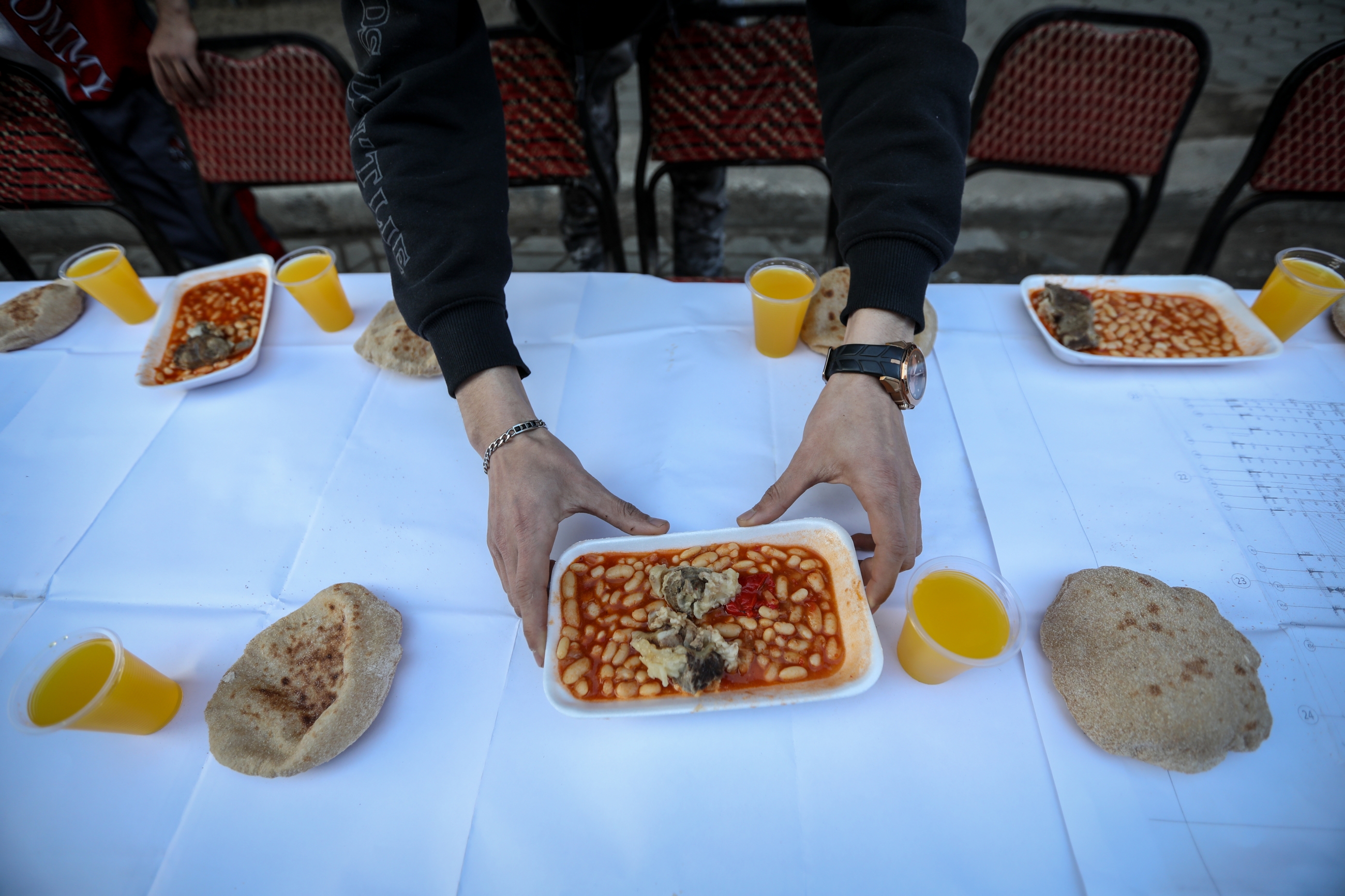
Members of the local community volunteer at the iftar tables, ensuring that everyone has something to eat and drink. “All of us here are brothers and sisters, friends and neighbours. We do this for the sake of God,” says Sherif.
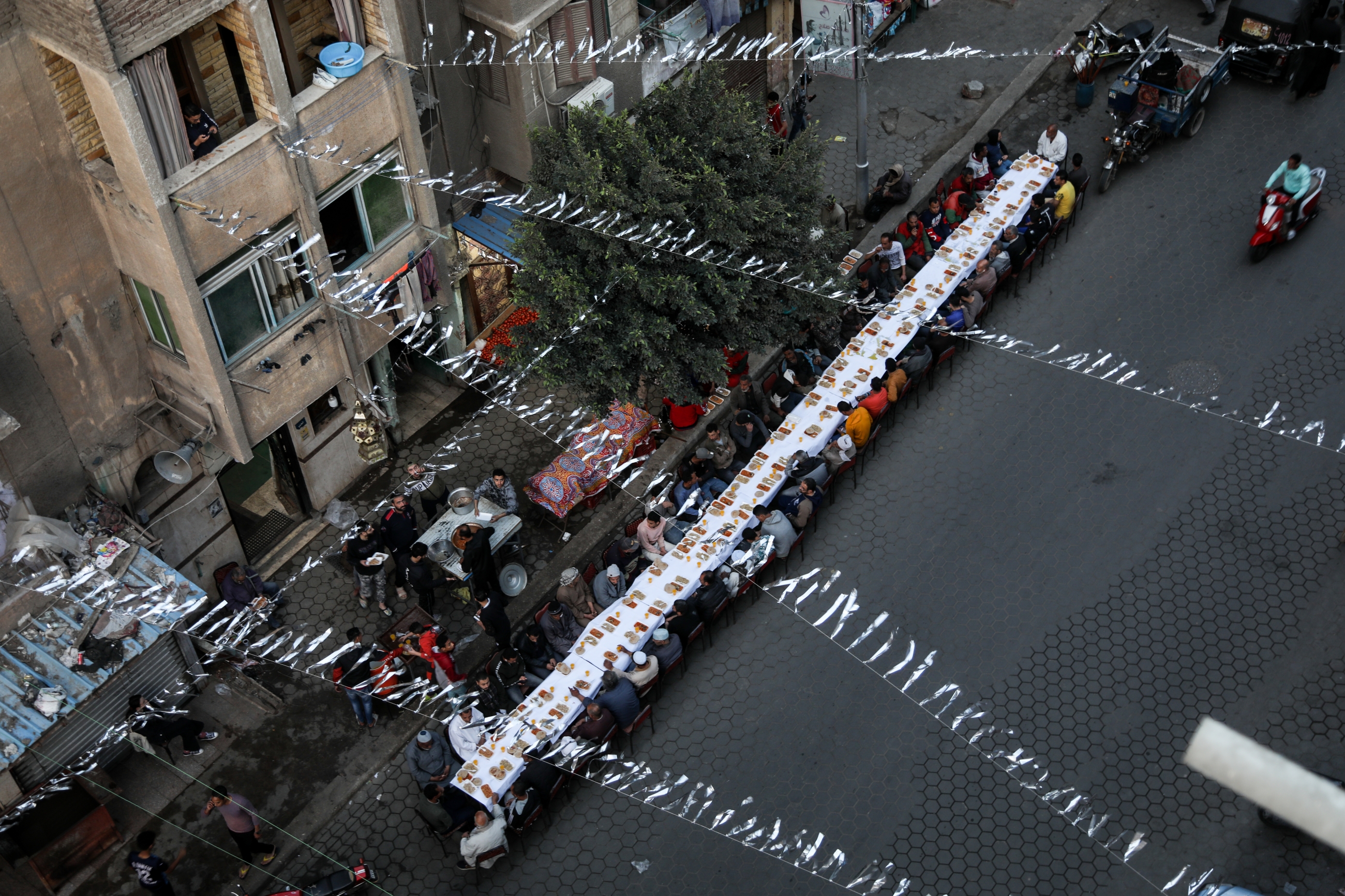
Mohammed Akl, 28, works at a clothing store in Cairo. He says he has been volunteering at public iftar tables for over 15 years. “I go to help my uncle and set up the table, then after people finish eating I will clean up,” he says. “I love helping out because it is a way of serving God."
Middle East Eye delivers independent and unrivalled coverage and analysis of the Middle East, North Africa and beyond. To learn more about republishing this content and the associated fees, please fill out this form. More about MEE can be found here.


